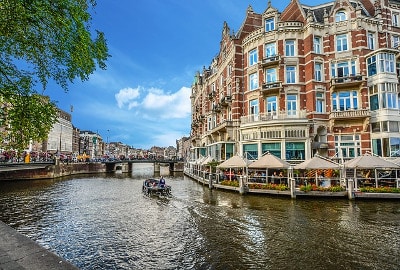Despite this, financial consultancy firm McKinsey & Company report that there has been a steep decline in banking revenue, down to $275 billion in 2017 from $345 billion in 2007. Lower equity returns are a major factor in this, particularly for European banks, which, according to European Banking Federation figures, stood at 5.6% last year – around half the level recorded before the last global financial crash.
Likewise, property market returns are also another challenge to investors and their wealth managers, with construction and real estate returns down significantly on their pre-crash levels.
It would be easy to read declining banking and property returns as all bad news, but the reality is starkly different. We must remember that we were in the grip of both a banking and property investment bubble at the beginning of this century; it is far better to, as McKinsey puts it, be “stuck in neutral” than it is to be burning up petrol in top gear while hurtling headlong on the freeway to nowhere.
Hopefully, these more modest outlooks are good news for investors in the long-run. As long as their wealth managers consider the broader picture and all the opportunities for growth, there is lots of room for long-term gains. If history has taught us anything it is that diversifying investments across multiple asset classes is the surest way for most to achieve their investment and retirement goals; for many, banking and property investments will still remain an important part of this, but they are not the infallible golden goose of investing. In fact, the golden goose doesn’t exist and the more we are reminded of this, the more likely we are to avoid false dawns and their inevitable crashes.
Your Investment Goals with Blacktower’s Expat Financial Services Team
Blacktower FM’s expat financial services team can help you achieve your goals over the long-term with prudent advice and a client-first approach to retirement planning and wealth management. For more information about how we can help you better achieve your dreams, contact us today.
This communication is for informational purposes only and is not intended to constitute, and should not be construed as, investment advice, investment recommendations or investment research. You should seek advice from a professional adviser before embarking on any financial planning activity. Whilst every effort has been made to ensure the information contained in this communication is correct, we are not responsible for any errors or omissions.

 As an expat the way you pay tax and how your
As an expat the way you pay tax and how your  France is the world’s most visited country, with over 89 million tourists pouring in every year to sample the many attractions it has to offer. Its culture is known and revered around the globe: couture fashion houses, the art of the impressionists, winemaking and of course, French cuisine. Paris, the capital city, sees over 17 million visitors yearly, who come to take in the sights of one of the world’s most beautiful cities. But tourism isn’t the only thing that France does well; it also regularly scores highly in global polls for quality of the healthcare system.
France is the world’s most visited country, with over 89 million tourists pouring in every year to sample the many attractions it has to offer. Its culture is known and revered around the globe: couture fashion houses, the art of the impressionists, winemaking and of course, French cuisine. Paris, the capital city, sees over 17 million visitors yearly, who come to take in the sights of one of the world’s most beautiful cities. But tourism isn’t the only thing that France does well; it also regularly scores highly in global polls for quality of the healthcare system.